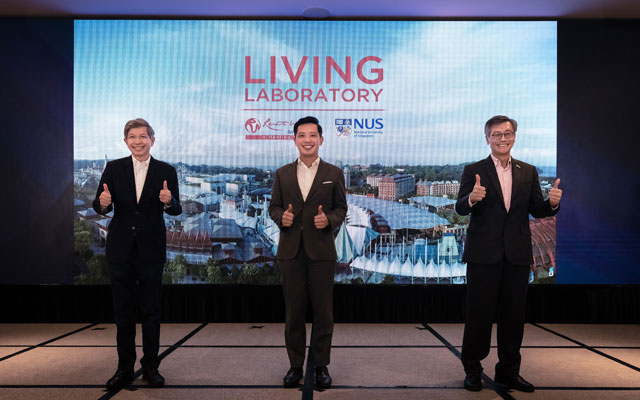The recent launch of the RWS-NUS Living Laboratory positions Resorts World Sentosa (RWS) and National University of Singapore (NUS) at the forefront to deliver on Singapore’s goals of achieving long-term success in sustainable tourism.
Jointly set up for biodiversity conservation and decarbonisation, the collaboration was launched on Wednesday (January 5) at Equarius Hotel, in the presence of guest of honour Alvin Tan, minister of state for trade and industry, and culture, community and youth.

The initiative aims to further the Singapore Green Plan 2030 and Sentosa Development Corporation’s plan to transform the island into a carbon-neutral destination by 2030.
RWS has committed S$10 million (US$7.3 million) in funding to support the five-year partnership – the single largest academic-industry partnership focused on biodiversity and energy conservation that will contribute directly to the tourism economy, environmental education and sustainability efforts in Singapore’s ESG (Environmental, Social & Governance) development.
The collaboration will capitalise on the strengths and expertise of RWS as Asia’s leading leisure and tourism destination and host to the upcoming Singapore Oceanarium (SGO) – a rebranding of the S.E.A. aquarium after it is expanded by more than three times – and NUS as a leading academic and research institution with rich and interdisciplinary capabilities in areas such as marine science, conservation and sustainability.
Some of the projects include enhancing the quality of the experience, marine education and research offered by SGO; as well as developing innovations to cool urban spaces to achieve a low carbon and healthy living environment and have them test-bedded at RWS properties and adapted for scalability.
RWS CEO Tan Hee Teck believes “the partnership will set the foundation for RWS to meet emerging trends where consumers are prioritising sustainability and unique engaging experiences when they travel”.
NUS president Tan Eng Chye is confident that both companies “will co-create many innovative and transformative research outcomes that will enhance biodiversity conservation, environmental sustainability, and decarbonisation” which “in turn, strengthens Singapore’s standing in eco-tourism”.




















